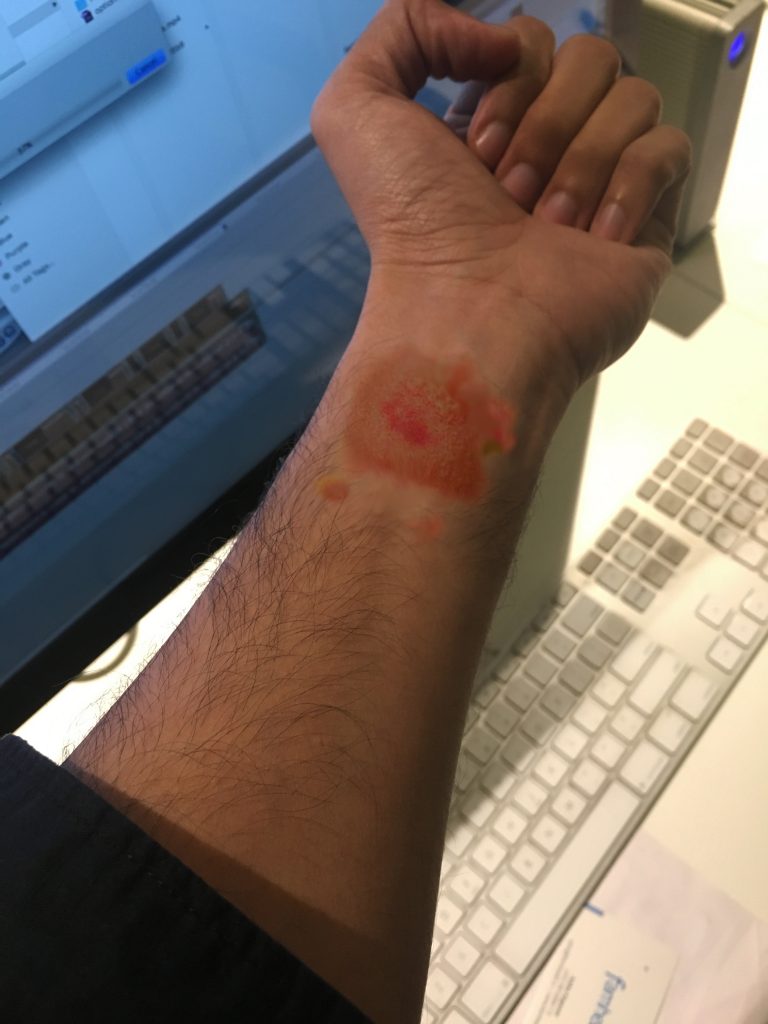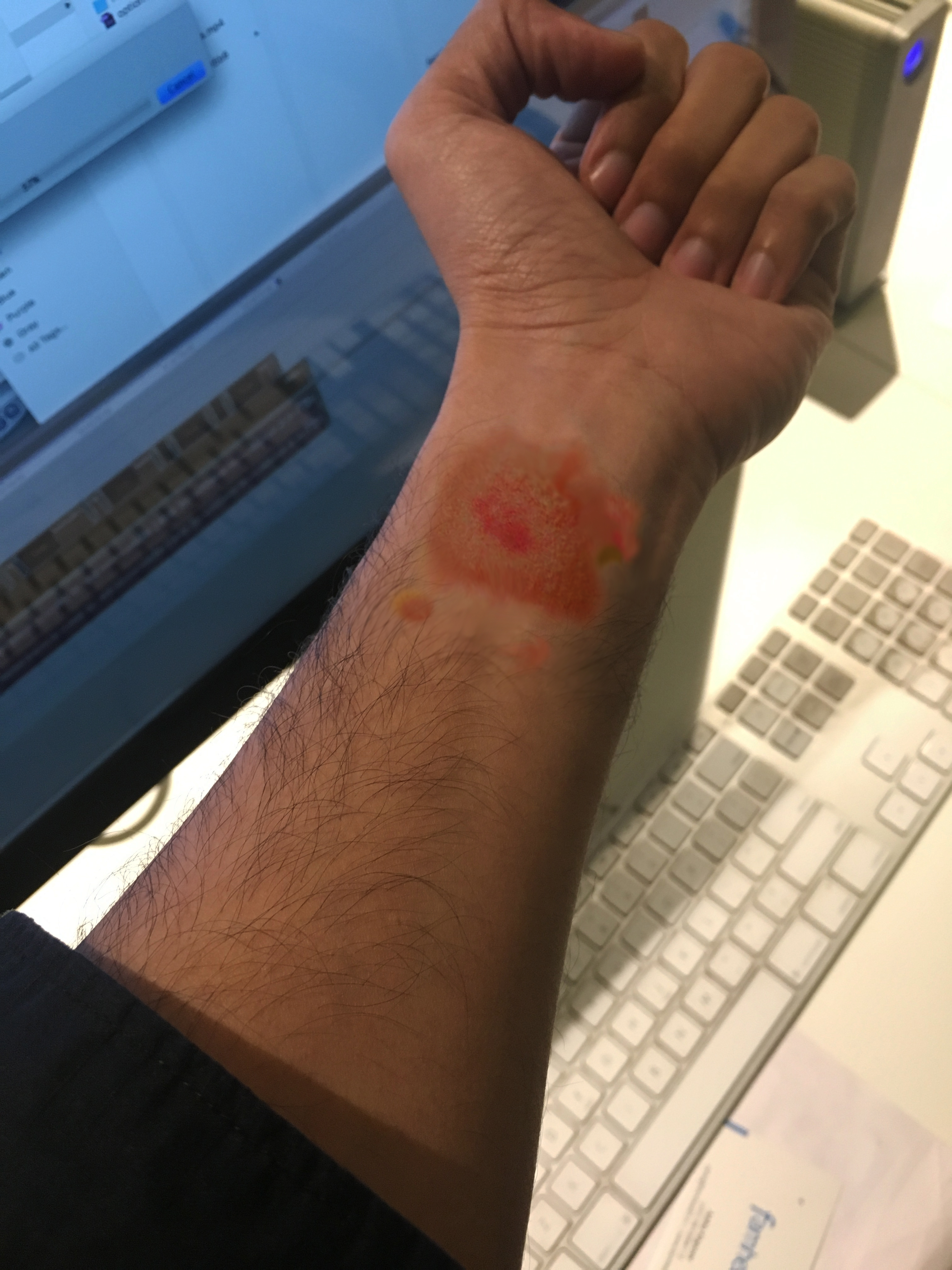Handling Minor Burns

- Gently clean the wound with lukewarm water.
- Though butter has been used as a home remedy, it should NOT be used on any burn.
- Rings, bracelets, and other potentially constricting articles should be removed (edema, or swelling from inflammation may occur and the item may cut into the skin).
- The burn may be dressed with a topical antibiotic ointment like Bacitracin or Neosporin. Silvadene (silver sulfadiazine) topical is the preferred agent for most burns, and is available over the counter in many locations.
- If there is concern that the burn is deeper and may be second or third degree in nature, medical care should be accessed.
- Tetanus immunization should be updated if needed.
For electrical burns:
Victims of electrical burns should always seek medical care.
For chemical burns:
- Identify the chemical that was involved.
- Contact the Poison Control Center in your area or your local hospital’s Emergency Department. You will be automatically linked to the nearest poison control center. Many chemical burns may be treated with local wound care. Some chemicals can cause life- and limb-threatening injuries and need emergent intervention. It is recommended that the hotline phone number be stored on your cell phone as well as posted at home and at the workplace.
- Victims with chemical burns to their eyes should always seek emergency care.
To read more on First Aid, click on the link below.



